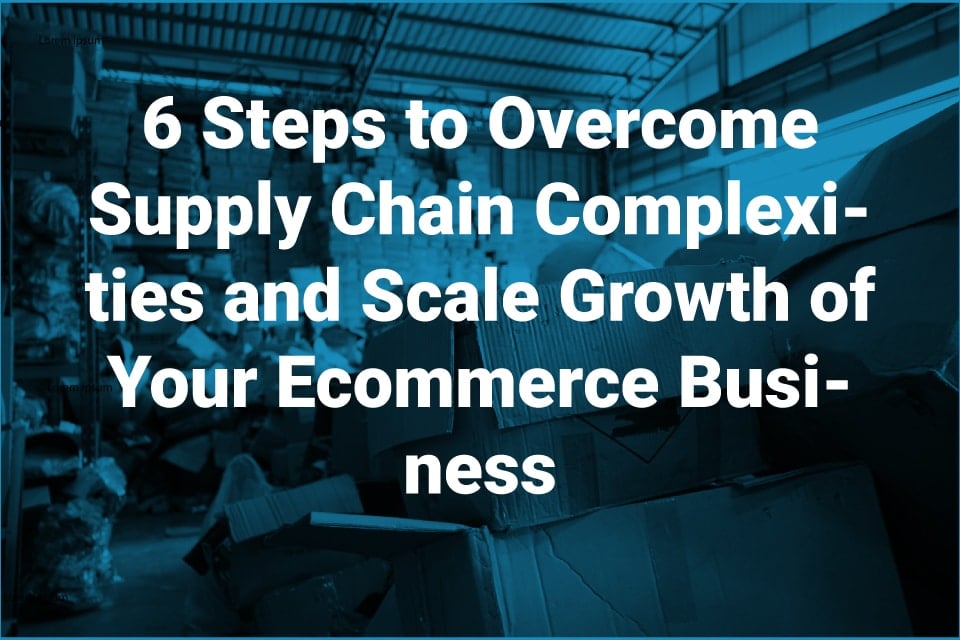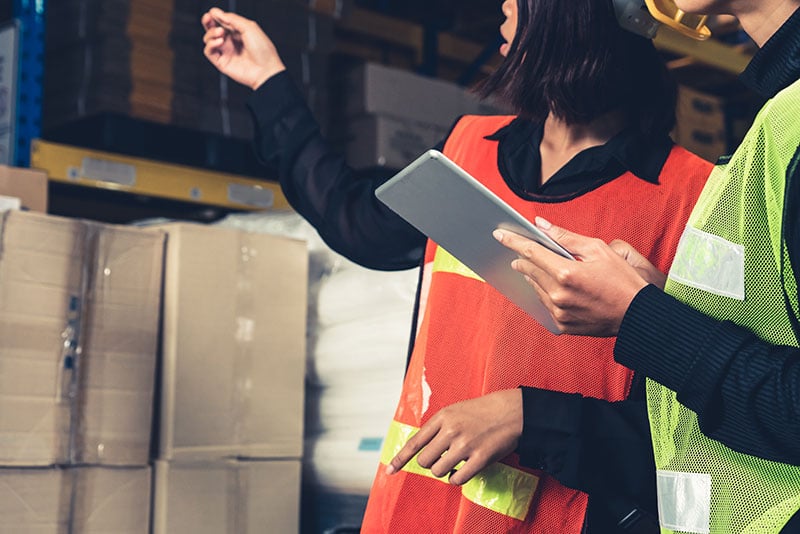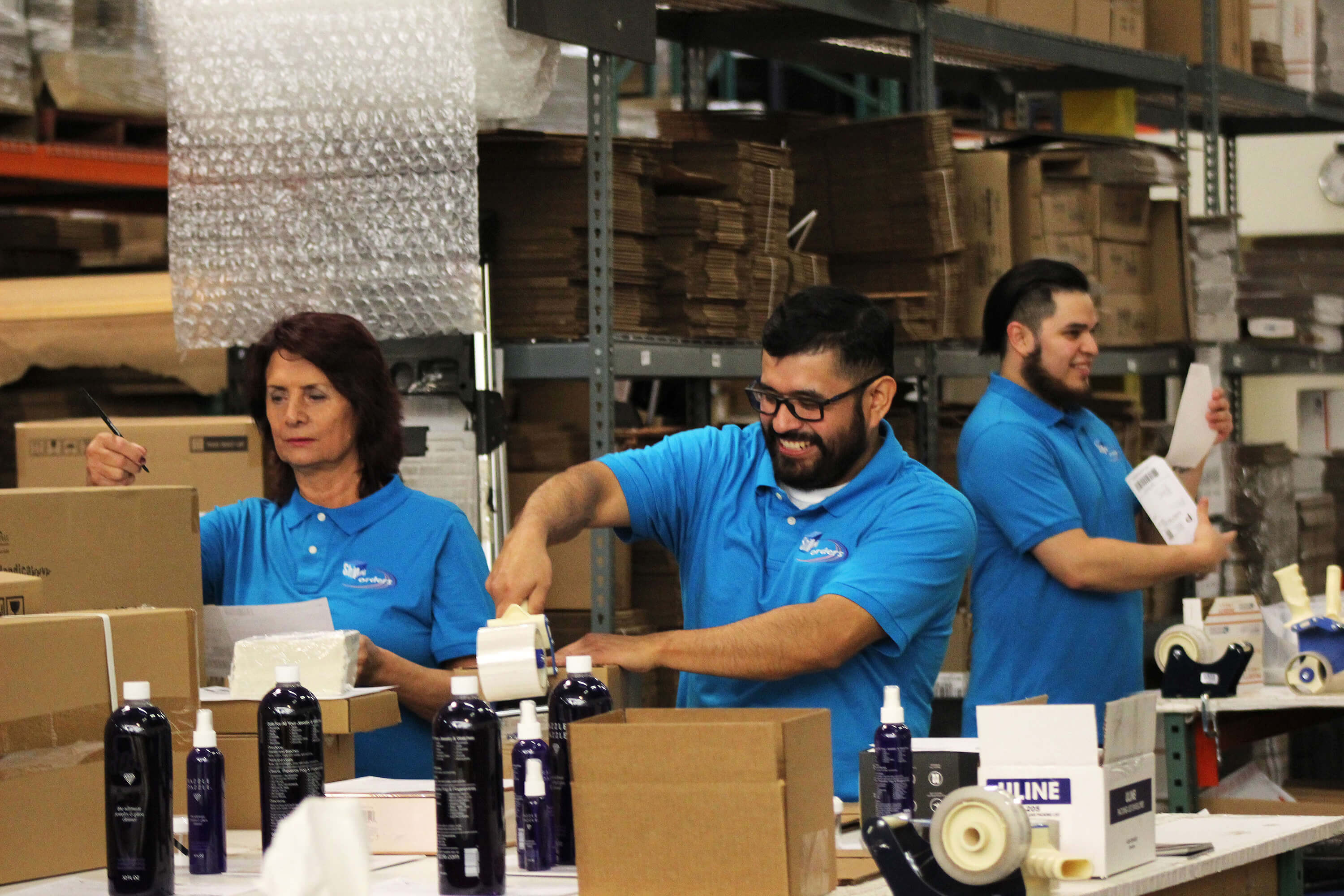6 Steps to Overcome Supply Chain Complexities and Scale Growth of Your Ecommerce Business

Your small business needs a smart, well-resourced, and flexible supply chain to compete in today’s market. Unfortunately, building your logistics from scratch from a patchwork of providers or adding capabilities as you scale is easier said than done. Add in disruptions from pandemic, natural disasters, war, or another crisis, and your supply chain challenges can only multiply.
Building out a supply chain that meets your businesses’ current and future needs can be a full-time job in itself. You need a simple and effective way to navigate these complexities so you can focus on growing and running your business. Here are 6 steps you can take to create a supply chain that will effectively serve your business through challenges today and tomorrow.
1. Understand the complexities that can impact your supply chain
There’s no other way to put it: your business will live or die by its supply chain. Modern supply chains are some of the most complex machines ever devised by humans, and without them, the global economy, and your business, wouldn’t be possible. Unfortunately, that means it’s hard to conceive of every potential point of failure that can stop your business from scaling or fulfilling orders.
With that in mind, it’s critical to run down potential threats to your business’s supply chain and identify gaps in your existing logistics capabilities. While the following list of supply chain disruptions is by no means comprehensive, it can give you a sense of the scope of challenges your business might face when fulfilling customers’ orders. Some logistics threats your business may face include:
– Unexpected e-commerce growth or sudden shortages
– Centralized inventory
– Limited or insufficient visibility
– Patchwork logistics
– Price fluctuations
– Natural disasters
– Transportation delays
– Cyber attacks
– Global pandemics and other world events
– Labor shortages
– Equipment availability
– Bottlenecks in processes
2. Evaluate your business and its needs
Keeping in mind the supply chain challenges your business is currently facing or could face in the future, it’s important to think about what logistics need your immediate attention. Does your business face seasonal fluctuations in demand, or constant sales across the year? Do you require special handling for a vast range of SKUs, or are you trying to simplify your operations with just a few items? Do you serve international customers?
You’ll also want to consider what your business will need to facilitate future growth. Do you anticipate a potential dramatic rise in sales, maybe due to an influencer picking up your product or a marketing campaign paying off? Are you in need of potential long-term logistics partners, or will short-term contracts fulfill your needs? Knowing these answers can help you avoid roadblocks to growth.
Once you’ve evaluated your business’s logistics needs, it’s time to find solutions to them.
3. Consider your options for overcoming these complexities and make a plan
When considering your options for building out your business’s supply chain, you’ll want to explore what each type of partner can offer. Your business might find that a warehouse isn’t enough and you require the services of a fulfillment center.
Knowing what each type of fulfillment partner offers can help you choose the best fit for your particular need. Warehouses offer product storage and inventory management services, but a distribution center or a fulfillment center will go a step further and ship your goods to other facilities or customers. A 3PL is well-suited to reach your customers with faster order fulfillment than you can find elsewhere.
If you’ll need help with returns, exchanges, or customer service related to them, working with a reverse logistics company can be vital to protecting your margins. If you plan on growing your ecommerce side, then working with an ecommerce fulfillment service is critical. They are better able to serve your business than a typical order fulfillment company, which may not be as tech-savvy.
4. Take action to better manage your supply chain and scale growth
Once you’ve identified what your business needs to build out its supply chain, it’s important to act fast. Begin researching and building relationships with companies that offer the logistics services you need. It can take time to find logistics providers that match with your existing network and business practices. The last thing you want to do is to sign a contract with the wrong logistics partner.
Every day that you wait to build out your supply chain puts your business at risk of wholly avoidable logistics disruptions. With some effort, you might find a better set of logistics providers than those which currently serve your business. For these reasons, it pays to get started on building out your order fulfillment logistics infrastructure as soon as possible, or you could face some tough choices.
5. Train employees to handle new processes and procedures
Any changes to your logistics system needs to be fully communicated to your employees. Even the most well-resourced supply chain could break if your employees aren’t aware of any new processes and procedures you’ve introduced. Create easy-to-follow systems and procedures so your current (and future) employees and supply chain managers can make full use of your logistics capabilities.
Supply chain disruptions can and will happen, so your employees need to have the skills and knowledge to adjust your logistics to them. It’s especially important to have these processes and their institutional knowledge in place as you scale your business. You wouldn’t expect an employee to operate a complex, expensive piece of machinery without any training, would you?
6. Monitor results and make necessary adjustments
Building out your logistics chain will be a continuous, ever-evolving process, especially as your business grows and changes. It’s important to monitor the results of any changes you make to your logistics, make adjustments, and learn from failures. Not every partnership will be right for your business or serve as a long-term solution, so regularly evaluate the changes you’re making.
When all signs point to a 3PL, Ship My Orders is your trusted order fulfillment and logistics service provider.
Finding a logistics partner who you can trust isn’t easy, especially if you’re facing a crush of new orders that need to be fulfilled. If you’re looking for a reliable third party logistics partner with the technology to keep up with changing market demands, Ship My Orders could be right for you. We serve an extensive roster of small businesses and can reach 80% of the United States within 3 days.
Find out how Ship My Orders can help your business and get a free, no-obligation quote today!

-1.png)


